CMIC: critical minerals research review
Matthew Reeves of Innovate UK provides an overview of the Critical Minerals Strategy, which sets out how the UK will go about securing its supply of critical minerals.
21/12/2023 By BGS Press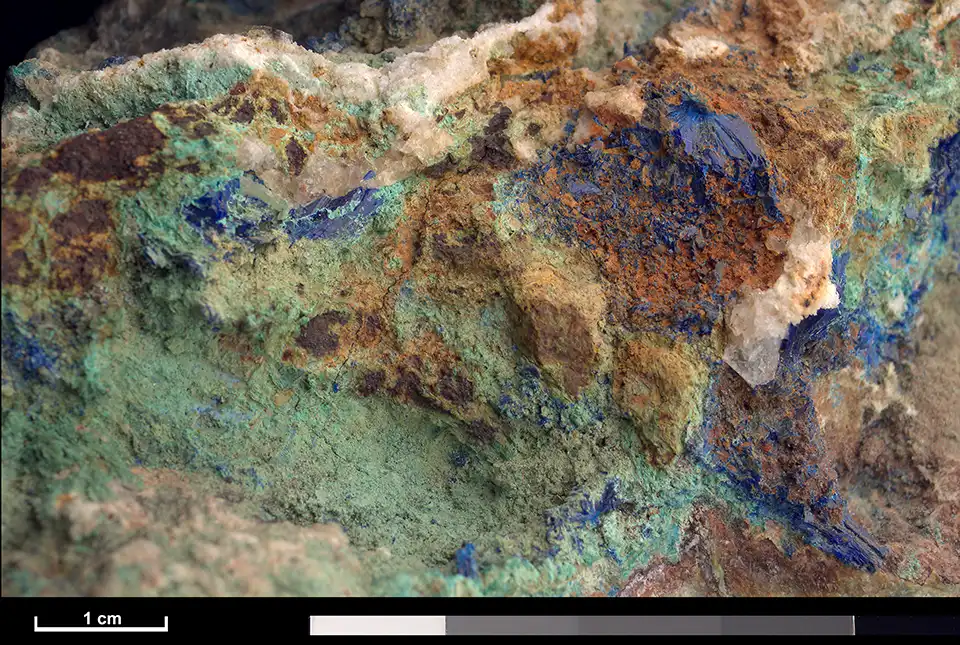
Critical minerals are a group of natural resources that are essential to modern society and increasingly in demand for their use in a wide range of industries, including electronics, renewable energy and transportation. They are considered ‘critical’ because despite their economic and technological importance they are in limited supply for varied technological and economic reasons, often produced in small quantities with supply possibly concentrated in few countries, which can lead to supply chain vulnerabilities and geopolitical tensions. In most cases, the issue of critical raw materials is not geological abundance but geopolitical and economical.
The issue of critical minerals
Critical minerals are an issue that has moved up the political agenda in recent years. In 2022, the UK produced its Critical Minerals Strategy, which sets out how the UK will go about securing its supply of critical minerals. The strategy contains three main aims:
- accelerate the growth of UK capabilities in the procurement, use and circular economy of critical minerals
- collaborate with international partners
- enhance international markets
The Critical Minerals Intelligence Centre (CMIC), which is hosted by BGS, was established to support the realisation of this strategy. CMIC works with universities as well as private and public sector partners to gather and analyse intelligence on the supply and demand of critical minerals, their global value chains and their use by UK industry.
Research and innovation will play a key role in dealing with the issues raised by critical minerals. This includes, for example, research into and development of:
- novel physical or chemical extraction and processing techniques, to create new sources of primary raw materials and improve the economic performance of current deposits
- novel recycling and processing techniques, to establish new sources of secondary materials and reduce the reliance on imported primary materials
- material synthesis, product design and manufacturing methods, to reduce the reliance on critical minerals and allow diversification
- technologies for tracking carbon emissions and material stocks and flows, to improve supply chain transparency and integrity
- environmental sustainability assessment methodologies, to allow financial institutions to have greater confidence in the impacts of their investments
To understand how best to deploy present and future research and development resources against critical mineral challenges, we need to understand the current situation and how it relates to critical minerals.
The research review
The critical minerals research review documented large research projects and programmes (from 2017 onwards) that are relevant to the eighteen raw materials designated as ‘critical’, plus another five on a ‘watchlist’. It also reviewed relevant research institutes and centres, public and industry bodies, and learned societies. The projects and programmes were categorised in terms of technology application, research area and industry sector, then analysed to generate some key statistics and insights.
In total, the review detailed £1.45 billion of funding. Of this, £0.9 billion was delivered through UKRI challenge programmes (for example, Faraday; Driving the Electric Revolution (DER); Transforming Foundation Industries; Medicine Manufacturing Challenge), which are largely business-led initiatives in the natural sciences.
Academic-led investments (approximately £0.4 billion) both complemented the UKRI challenge programme priorities (Faraday Institute; DER industrialisation centres) and targeted adjacent priority areas set by other research councils (Engineering and Physical Sciences Research Council (EPSRC); Biotechnology and Biological Sciences Research Council (BBSRC); Natural Environment Research Council (NERC), etc.). These priority areas include:
- catalysis, exploration and extraction research
- fundamental advanced materials research and development
- green chemistry
- sustainability
- circular economy
Only £153 million of projects in the dataset specifically addressed underlying issues of criticality or were directly relevant to particular elements or minerals. Of the directly relevant funding, the top three elements and minerals targeted are:
- silicon (around £35 million)
- lithium (around £25 million)
- rare earth elements or REEs (around £25 millions)
Most of the funding for research into REEs has come very recently from the Circular Critical Materials Supply Chain (CLIMATES) programme from Innovate UK. Whilst it should be no surprise to see a battery element (lithium) and the set of metals needed to make high-performance permanent magnets (REEs) in the top three, in general there is a poor correlation between the recent, targeted investment and the criticality score given in the UK Critical Minerals Strategy. In other words, there are minerals deemed to be critical that have historically received little attention or research and development investment.
Funding relevant to critical minerals is generally delivered by multiple research councils and government departments, including:
- Innovate UK
- EPSRC
- BBSRC
- NERC
- Economic and Social Research Council (ESRC)
- Department for Business and Trade (DBT)
- Defra
This distributed approach may be diluting the impact of funded research and providing a complicated funding landscape for researchers and businesses to navigate.
Outcomes and next steps
It is clear from the review that the UK has significant strengths in multiple research areas relevant to critical minerals, including:
- exploration and extraction
- materials science
- (bio)chemical engineering
- advanced manufacturing
- supply chain digitalisation
- environmental, social and governance (ESG)-compliant financing
However, significant future investment is required on a multidisciplinary basis, to address major challenges around security of supply of critical minerals for the UK economy. Building on previous investments, these new investments should aim to develop appropriate criticality mitigation strategies to increase UK resilience across critical mineral value chains relevant to multiple applications.
To provide interdisciplinary solutions that can be easily translated into impact for decision makers in government and industry, integrated research and innovation is needed across three key areas:
- responsible acquisition and processing of raw materials
- building resilient, secure and productive supply chains
- identifying alternative materials, manufacturing technologies and business models to achieve a circular economy
Critical minerals will become increasingly important over the coming decades as we deploy renewable energy and sustainable transportation and reduce our reliance on fossil fuels. Investing in critical minerals research and development will contribute to the successful implementation of these changes and allow the UK to lead in the creation of the future green economy.
About the author
Matthew Reeves, Innovate UK
Relative topics
Related news

New interactive map viewer reveals growing capacity and rare earth element content of UK wind farms
16/05/2025
BGS’s new tool highlights the development of wind energy installations over time, along with their magnet and rare earth content.
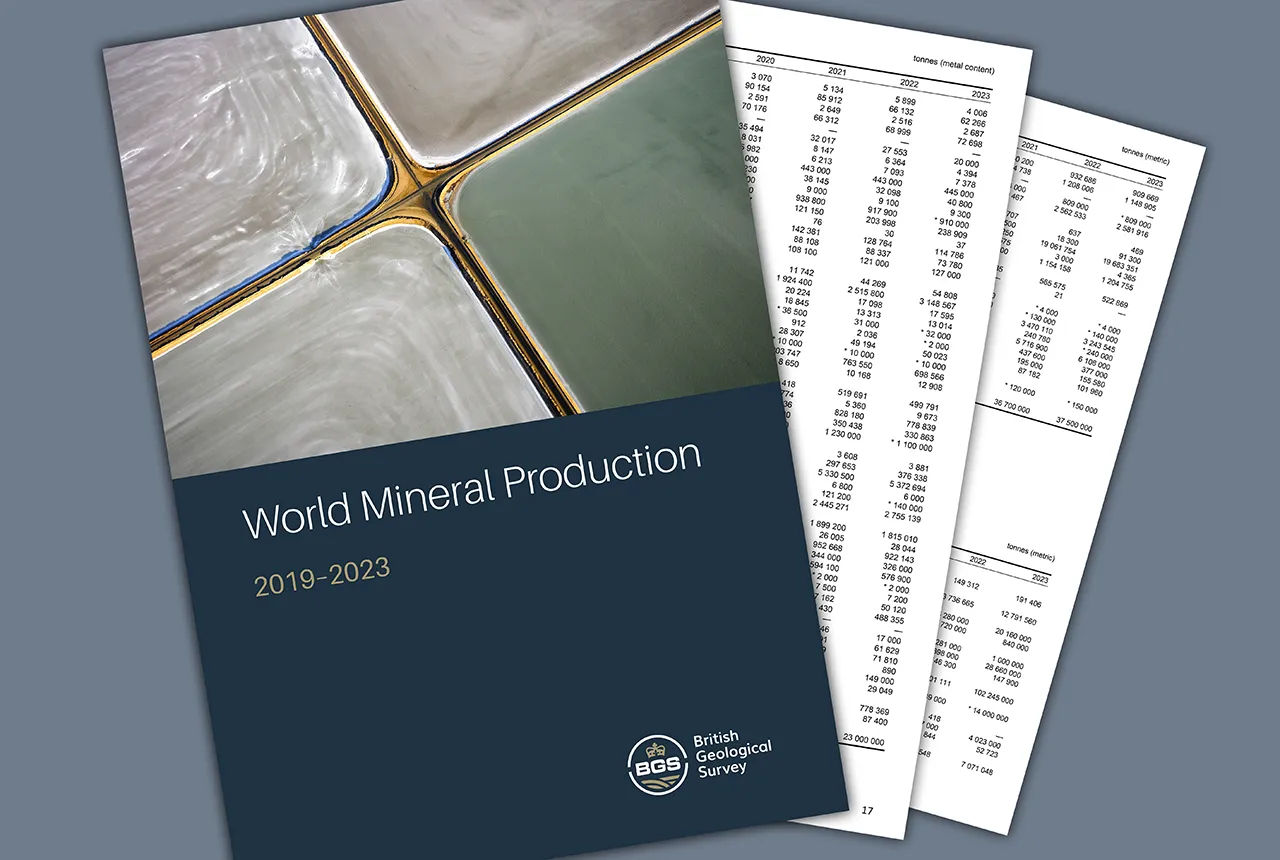
Latest mineral production statistics for 2019 to 2023 released
28/04/2025
More than 70 mineral commodities have been captured in the newly published volume of World Mineral Production.
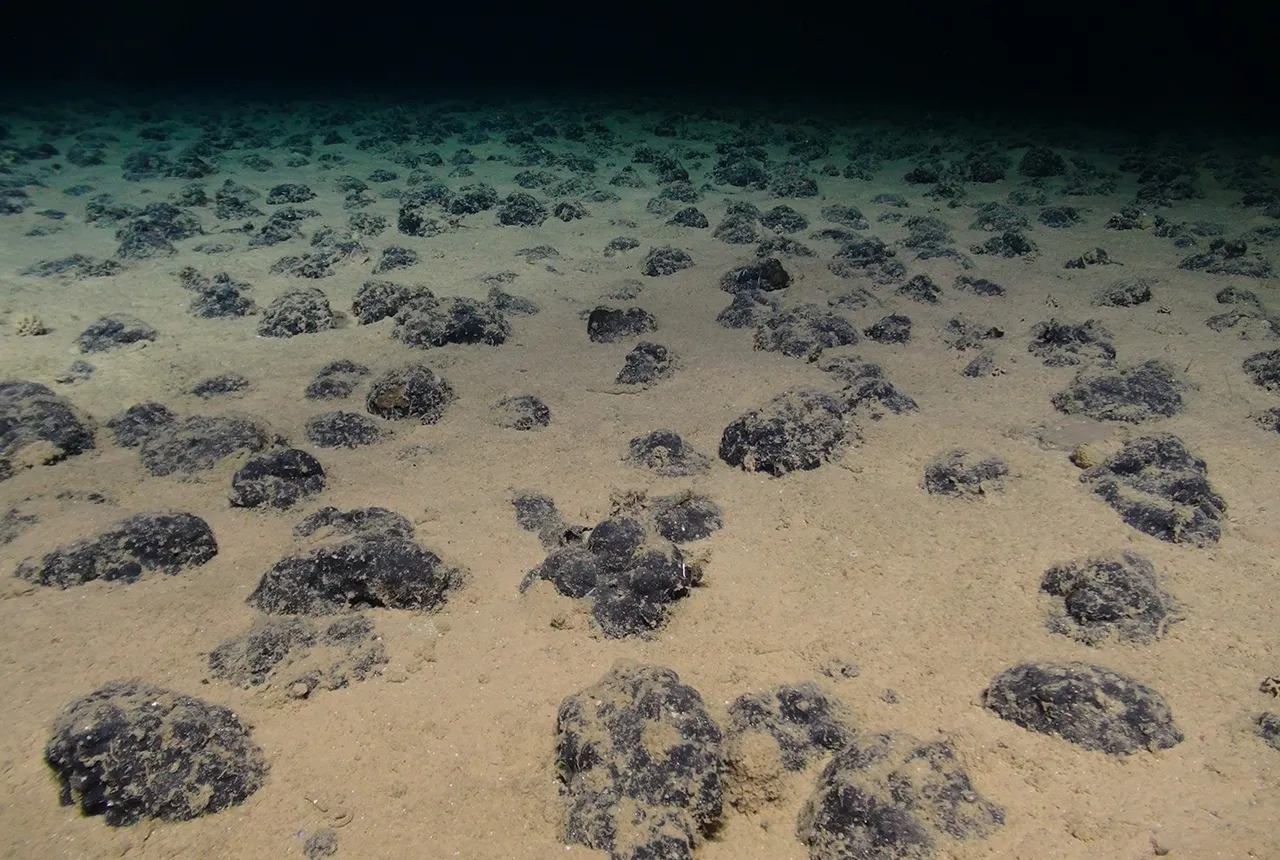
New study reveals long-term effects of deep-sea mining and first signs of biological recovery
27/03/2025
BGS geologists were involved in new study revealing the long-term effects of seabed mining tracks, 44 years after deep-sea trials in the Pacific Ocean.
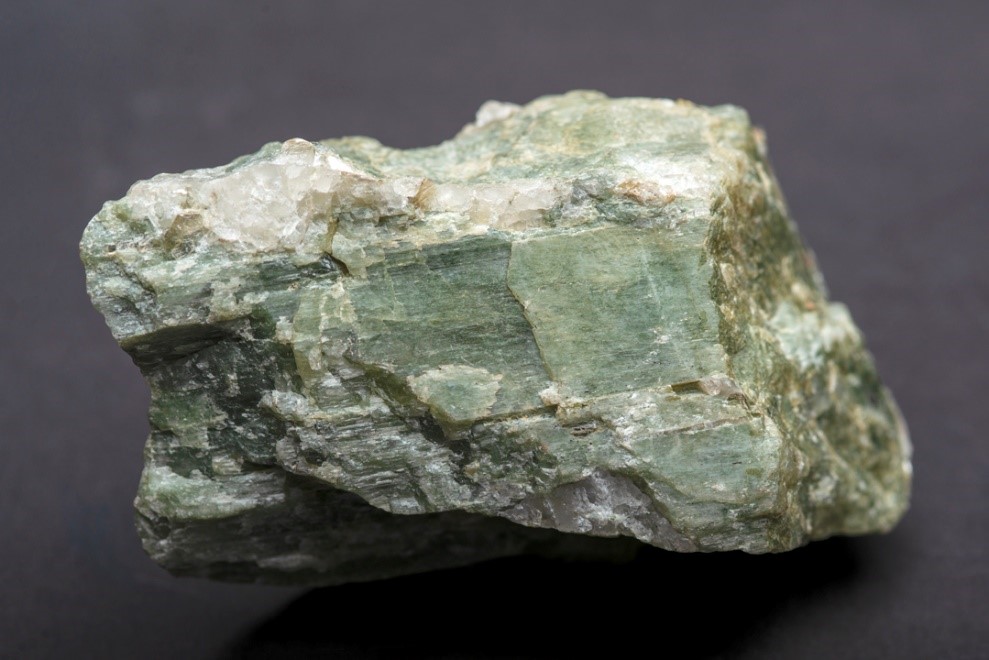
Future projections for mineral demand highlight vulnerabilities in UK supply chain
13/03/2025
New Government-commissioned studies reveal that the UK may require as much as 40 per cent of the global lithium supply to meet anticipated demand by 2030.
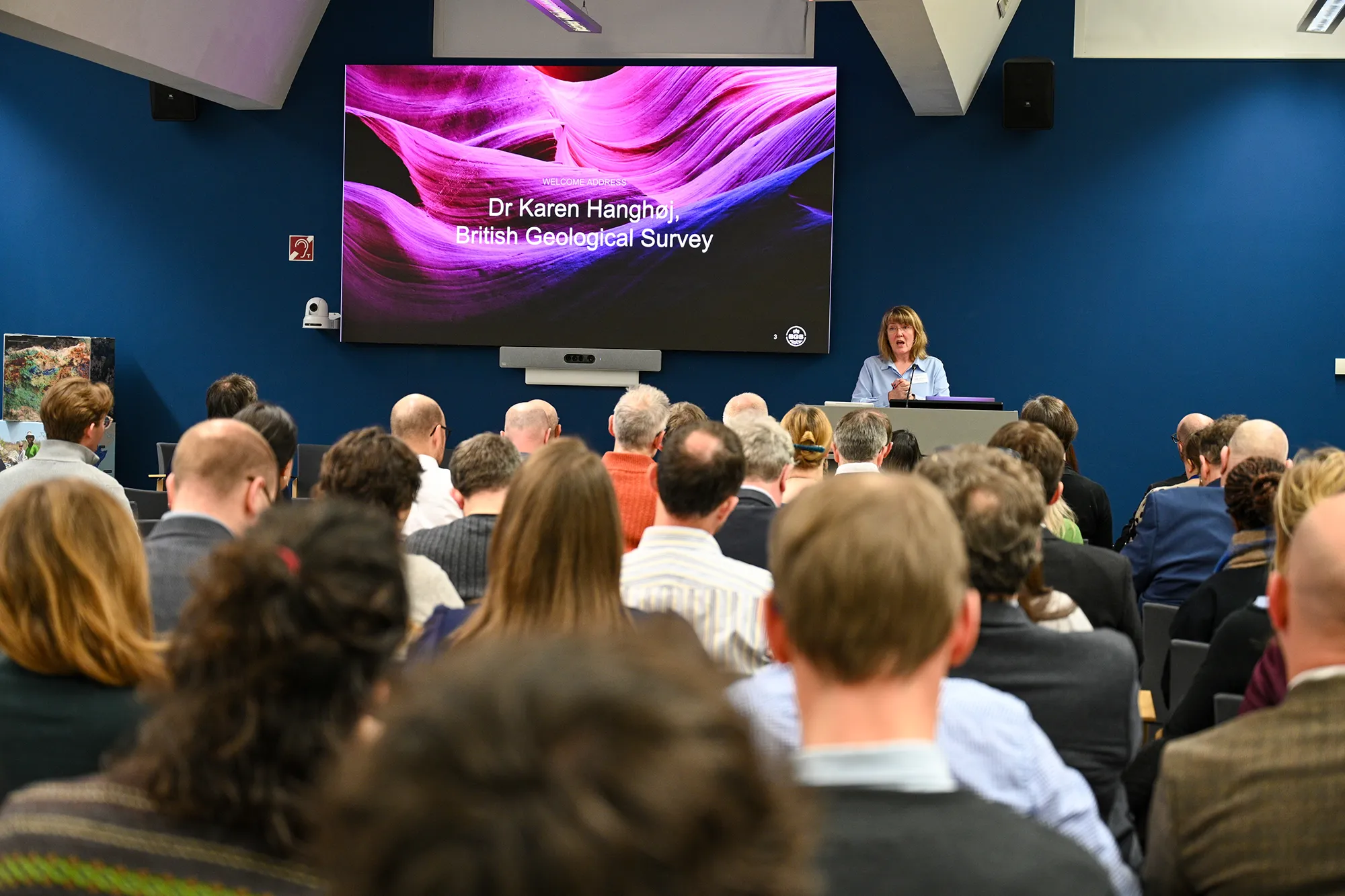
Critical Mineral Intelligence Centre hosts second conference
28/02/2025
The Critical Minerals Intelligence Centre conference took place at BGS’s headquarters in Keyworth, Nottinghamshire.

Dr Kathryn Goodenough honoured with prestigious award from The Geological Society
27/02/2025
Dr Kathryn Goodenough has been awarded the Coke Medal, which recognises those who have made a significant contribution to science.

The challenge of assessing the UK economy’s dependence on mineral supply
28/11/2024
Critical, essential, or just plain important? Dr Gavin Mudd, director of the Critical Minerals Intelligence Centre, discusses the findings and new methodology featured in the 2024 UK Criticality Assessment.
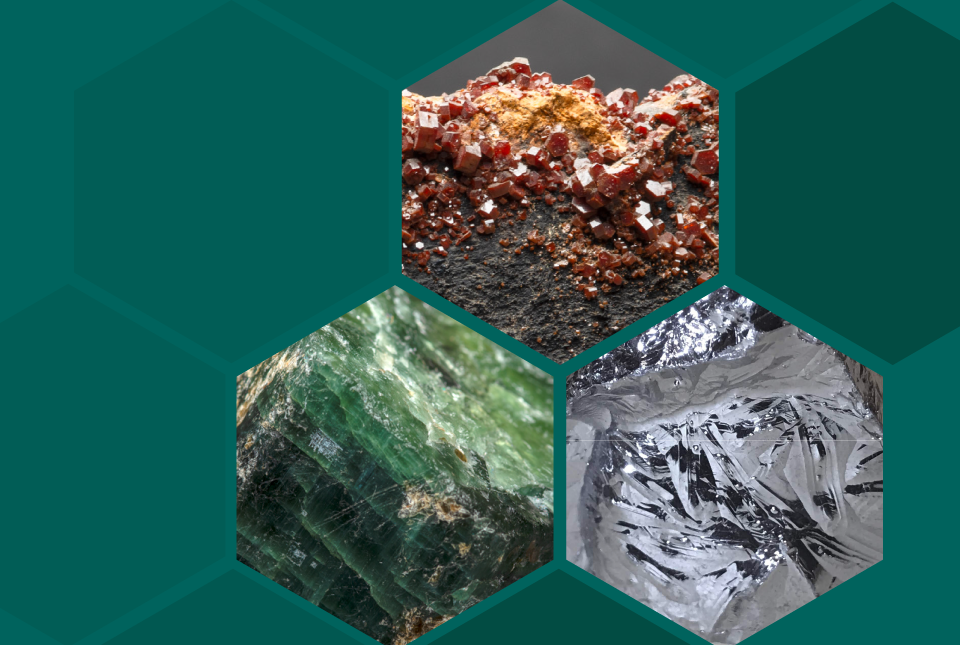
UK 2024 Criticality Assessment published
28/11/2024
The latest UK Criticality Assessment, produced by the UK Critical Minerals Intelligence Centre, shows that growing diversification brings an increasing vulnerability in terms of disruption to supply.
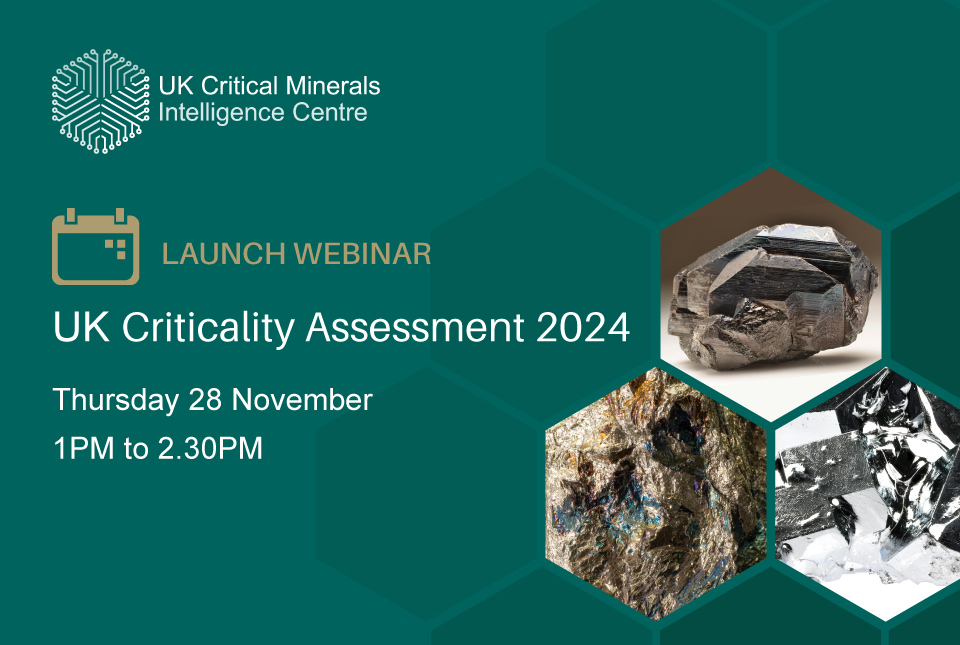
Criticality Assessment 2024 launch webinar
Event on 28/11/2024
A special live webinar with the team from the Critical Minerals Intelligence Centre to accompany the launch the latest UK Criticality Assessment. A recording is now available to watch online

Mining sand sustainably in The Gambia
17/09/2024
BGS geologists Tom Bide and Clive Mitchell travelled to The Gambia as part of our ongoing work aiming to reduce the impact of sand mining.
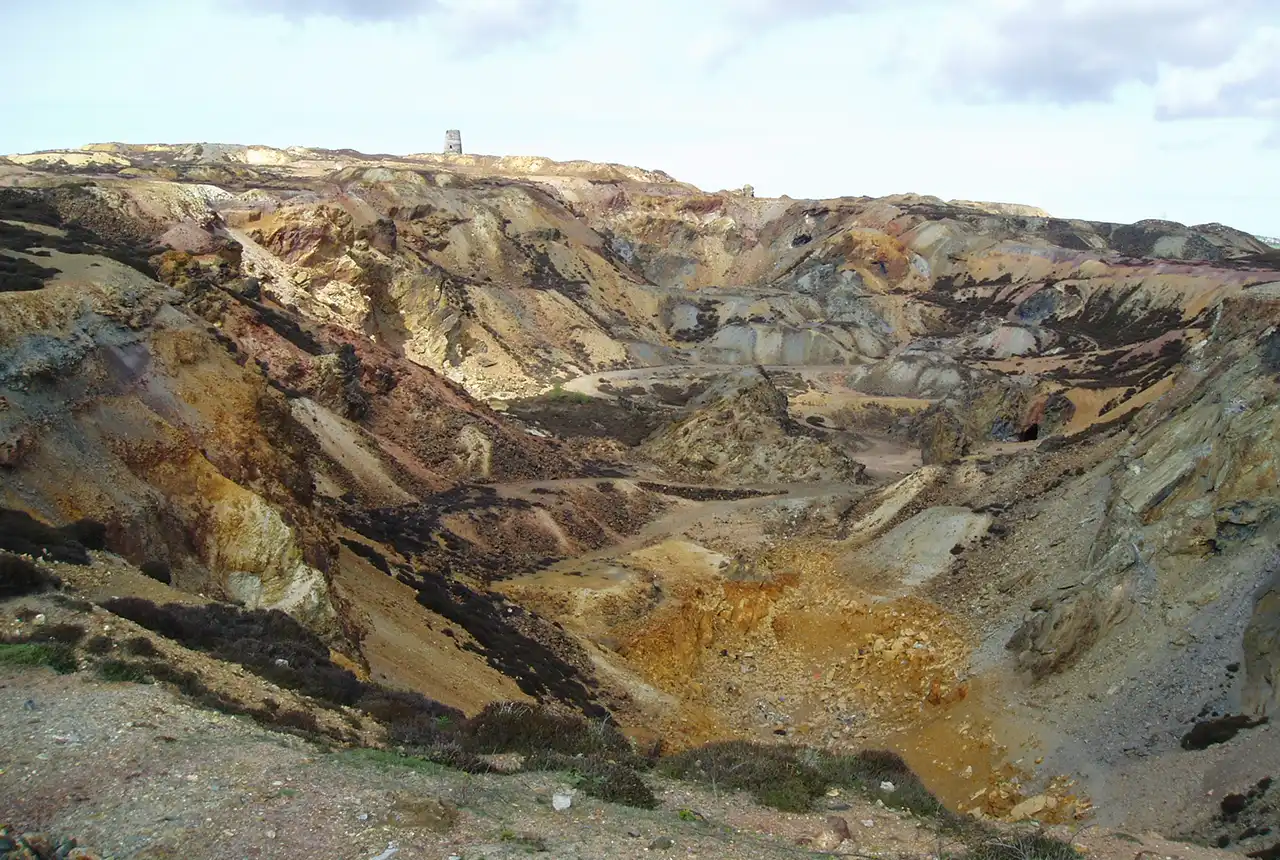
Over 600 mineral exploration project reports now available through the UK Critical Minerals Intelligence Centre
17/05/2024
All 662 reports from the Mineral Exploration and Investigation Grants Act programme are now available on the Critical Minerals Intelligence Centre website.
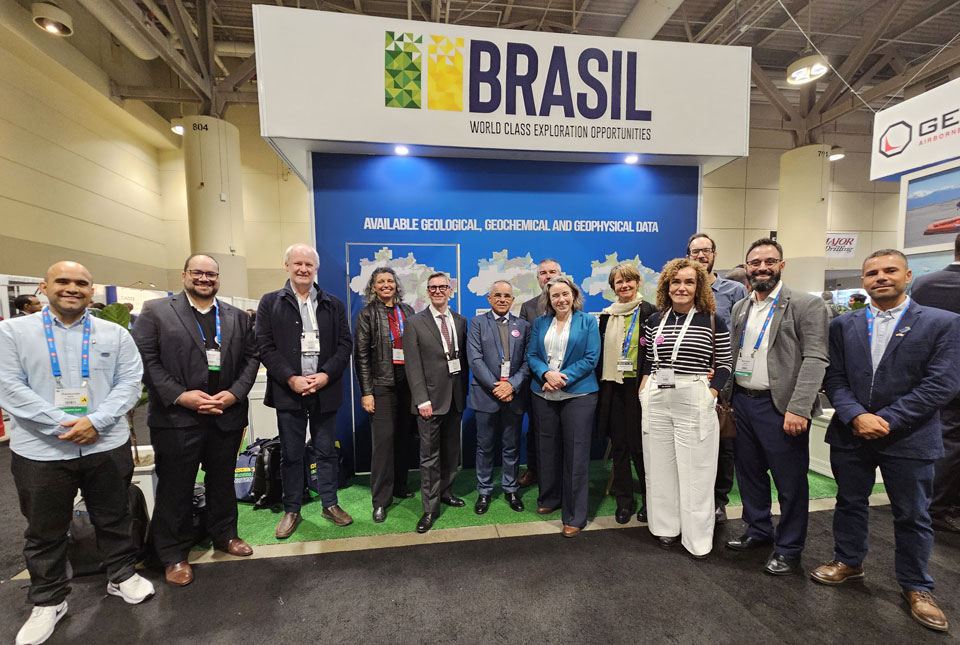
BGS signs memorandum of understanding with Serviço Geológico do Brasil
10/04/2024
The partnership will advance the two organisations’ shared interests in mineral research and geoscience to help benefit society.


